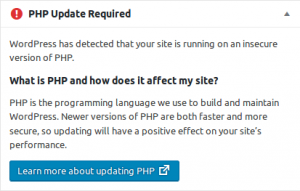We know that some of you are no doubt weary of COVID-19 (coronavirus) news updates, but we’re prompted to make this brief statement.
NinerNet‘s operations are not currently, nor forecast to be, affected by this pandemic. We do have business continuity plans, but at this point they have not needed to be activated beyond following public health guidelines and directives. We have had communications from some (but not all) suppliers that they are implementing contingency plans to ensure the continuity of their own businesses, and therefore we do not anticipate we or you (our clients) will be adversely affected.
It’s important to remember that the vast majority of the relatively small numbers of people who have been affected so far have recovered. This means life will no doubt carry on as usual in the near future.
In the meantime though, as the operators of a service on which you rely for information communication, we want to remind you that the scammers and spammers never rest — in fact, through our spam filtering we know they are already at work, attempting to take advantage of fear. If you receive any email about the pandemic — offering rumours, cures, masks, hand sanitiser or even (in some parts of the world) toilet paper! — they are best ignored.
We very much appreciate your business. We hope you are staying safe and healthy, and we look forward to continuing to serve you for many years to come. If we can help you or your business in some way during this time, please do tell us how.
Here are some links that may help you get some factual information from your governmental health authorities:
- Health Canada
- Centers for Disease Control and Prevention (USA)
- Ministry of Health (Zambia)
- Department of Health (Australia)
- National Health Service (UK)
- BC Centre for Disease Control
- World Health Organization
Thank-you, and stay well.
Craig
